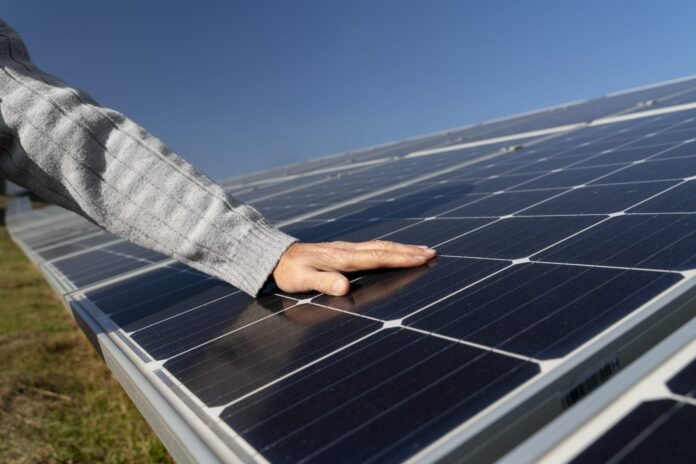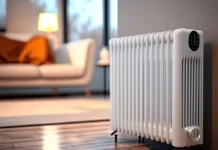As energy costs rise and environmental awareness grows, homeowners are seeking innovative ways to heat their homes sustainably. Among these solutions, solar-powered furnaces stand out as an eco-friendly option with the potential to revolutionize home heating. But can solar power truly run your furnace? And is it the right choice for your home?
Before diving into this transformative heating solution, it’s essential to consult with a trusted HVAC professional. A detailed assessment can help ensure your current heating system is compatible with solar technology and guide you in selecting the ideal setup. Scheduling a furnace installation consultation is the first step toward embracing this sustainable technology.
This guide explores how solar furnaces work, their benefits, and whether they can replace traditional heating systems.

What Are Solar-Powered Furnaces and How Do They Work?
A solar-powered furnace uses renewable energy from the sun to generate heat, providing a cost-effective and environmentally friendly alternative to conventional gas or electric furnaces. There are two primary types of solar furnaces:
- Solar Thermal Furnaces: Using mirrors or lenses, these systems concentrate sunlight onto a small area to produce high temperatures. Though traditionally used in industrial settings, they are now being adapted for home heating.
- Solar Air Furnaces: Specifically designed for residential use, these systems heat air directly, circulating it through the home. They are ideal for sunny climates and can work independently or supplement existing heating systems.
How Solar-Powered Heating Works:
- Solar Collection: Panels or collectors absorb sunlight and convert it into heat. In solar air furnaces, the collector heats the air directly.
- Heat Circulation: A blower or fan distributes the warmed air through your home’s ductwork.
- Thermal Storage (Optional): Some systems include storage for excess heat, ensuring your home remains warm even at night or during cloudy weather.
For optimal performance, it’s crucial to ensure your HVAC system is compatible with solar integration. An expert in furnace maintenance can help identify any necessary modifications.
Top Benefits of Switching to Solar-Powered Furnaces
Investing in a solar furnace comes with several advantages, particularly for eco-conscious homeowners:
- Lower Utility Bills: Solar heating relies on free sunlight, significantly reducing monthly energy costs.
- Eco-Friendly Heating: These systems produce zero greenhouse gas emissions, making them a sustainable choice.
- Energy Independence: Solar furnaces help you break free from fluctuating energy prices and grid reliance.
- Low Maintenance: With fewer moving parts, solar-powered systems often require less upkeep compared to traditional furnaces.
Challenges and Considerations for Solar Heating
While solar furnaces offer impressive benefits, it’s important to be aware of potential challenges:
- Weather Dependency: Solar heating relies on consistent sunlight, which may be limited in cloudy or wintery climates. Many homeowners opt for hybrid systems that combine solar with traditional furnaces for backup.
- Initial Investment: The upfront cost of installation can be high, but tax incentives and long-term savings often offset this expense.
- Space Requirements: Solar collectors require sufficient outdoor space, typically on your roof or in your yard.
- System Compatibility: Retrofitting a solar furnace into an existing HVAC setup may require adjustments, underscoring the need for professional advice.

Are Solar Furnaces the Future of Heating?
Solar-powered heating is becoming increasingly popular as homeowners prioritize sustainability. With advancements in technology, such as smart thermostats and improved thermal storage, solar furnaces are more efficient and accessible than ever.
For homes in sunny climates, solar air furnaces offer a practical way to reduce energy consumption while minimizing environmental impact. Even in less sunny regions, hybrid systems can make solar heating a viable option.
Is a Solar Furnace Right for Your Home?
Deciding whether to switch to solar heating depends on several factors:
- Location: Homes in sunny areas benefit the most.
- Budget: Consider the initial investment versus long-term savings.
- Energy Goals: Solar heating aligns with eco-friendly and cost-saving priorities.
A reputable HVAC provider can evaluate your home’s suitability, discuss financing options, and recommend the best approach. Scheduling a furnace service consultation is the first step to exploring this technology.
____________________________________________________________________________
FAQs About Solar-Powered Heating
1. Can a solar furnace work in winter?
Yes, but efficiency depends on the amount of sunlight available. Hybrid systems are ideal for ensuring consistent warmth in colder months.
2. How much does a solar furnace cost?
While upfront costs vary, incentives like tax credits can significantly reduce expenses. Long-term energy savings often make the investment worthwhile.
3. Do solar furnaces require maintenance?
Solar furnaces generally require less maintenance than traditional systems due to fewer moving parts. However, periodic inspections by HVAC professionals are recommended.
____________________________________________________________________________
Take the Next Step Toward Sustainable Heating
Solar-powered furnaces are transforming the way we heat our homes. Whether you’re ready to make the switch or simply exploring your options, partnering with an experienced HVAC company ensures your system is tailored to your unique needs.
Contact us today to learn more about solar furnace installation and take the first step toward a cleaner, greener, and more cost-effective heating solution.
















